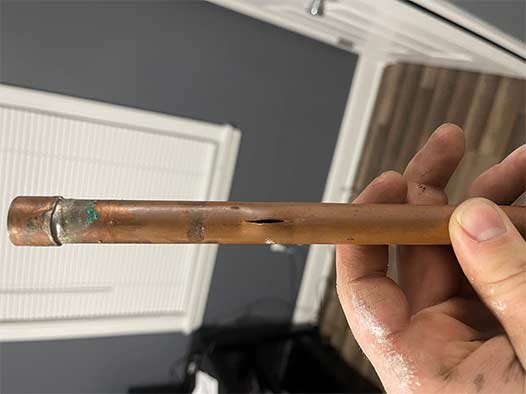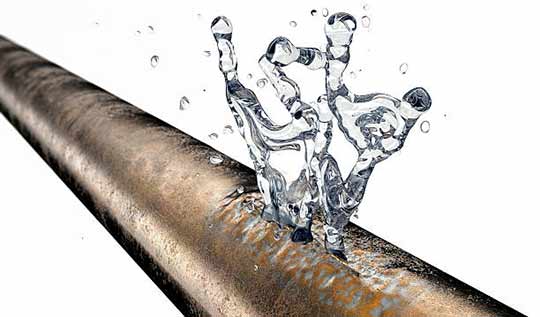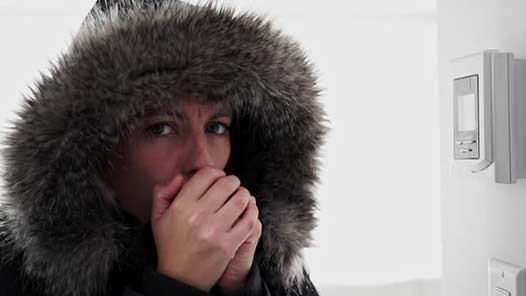During the harsh winter months in Chicago, one of the biggest concerns for homeowners and businesses alike is the potential for pipes to burst. The extreme temperatures and freeze-thaw cycles can wreak havoc on plumbing systems, leading to costly repairs and inconvenience. In this article, we will explore the importance of winterizing pipes in Chicago and discuss the steps that can be taken to prevent bursting.
The Dangers of Burst Pipes
Burst pipes pose a significant risk to both residential and commercial properties. When water freezes inside a pipe, it expands and puts pressure on the walls. Eventually, the pipe may not be able to withstand the pressure, resulting in a rupture. The consequences of burst pipes can be devastating:
1. Water Damage
When a pipe bursts, it releases a large volume of water into the surrounding area. This can lead to extensive water damage, soaking carpets, furniture, and other belongings. In severe cases, the water damage may even extend to structural elements of the building, compromising its stability.
2. Mold and Mildew Growth
The presence of water from burst pipes creates the perfect environment for mold and mildew to thrive. Mold growth can be harmful to both property and human health, causing respiratory issues and allergies. The remediation process for mold can be expensive and time-consuming.
3. Disruption to Daily Life
When a pipe bursts, it can disrupt the normal functioning of a home or business. Loss of running water can make everyday tasks such as cooking, cleaning, and personal hygiene challenging. In commercial settings, burst pipes can lead to business closures, resulting in financial losses.
4. Increased Utility Bills
When pipes burst, water wastage is a concern. The continuous flow of water can significantly increase utility bills, adding to the financial burden of repairs. Additionally, repairs to burst pipes can be costly, especially if they involve accessing hard-to-reach areas or replacing damaged sections.

The expansion and contraction caused by freeze-thaw cycles can weaken pipes over time, making them more prone to bursting.
Why Chicago Pipes Are Vulnerable
Chicago’s climate is characterized by frigid temperatures and frequent freeze-thaw cycles. These conditions can put immense stress on pipes, making them more susceptible to bursting. Understanding why Chicago pipes are vulnerable highlights the necessity of winterizing:
1. Freezing Temperatures
Chicago experiences freezing temperatures for a significant portion of the winter. When exterior pipes are exposed to these extreme temperatures, the water inside them is at risk of freezing. Frozen water expands and increases pressure, leading to pipe ruptures.
2. Freeze-Thaw Cycles
Chicago’s weather often includes periods of thaw following freezing temperatures. During the thaw, the frozen water in pipes begins to melt, resulting in rapid temperature changes. The expansion and contraction caused by freeze-thaw cycles can weaken pipes over time, making them more prone to bursting.
3. Age and Material of Pipes
Many older properties in Chicago have pipes made of materials that are more susceptible to freezing and bursting, such as galvanized steel or copper. These materials may have deteriorated over time, making them weaker and more prone to failure when exposed to extreme weather conditions.
The Importance of Winterizing Pipes
Winterizing pipes is the process of preparing them for the freezing temperatures and potential freeze-thaw cycles of winter. Taking the necessary steps to winterize pipes in Chicago is crucial for the following reasons:
1. Preventing Burst Pipes
The primary goal of winterizing pipes is to prevent them from bursting. By insulating pipes, applying heat tape, and sealing gaps, the risk of frozen water and subsequent ruptures can be significantly reduced. Proper insulation helps maintain the temperature of the water inside the pipes, preventing it from freezing and expanding.
2. Avoiding Repair Costs
Preventing burst pipes through winterization can save homeowners and businesses from costly repairs. Repairing burst pipes often involves locating the source of the rupture, accessing the affected area, and replacing damaged sections. By investing in winterization, property owners can avoid the hassle and financial burden of extensive repairs.
3. Preserving Property and Belongings
Winterizing pipes not only protects the plumbing system but also safeguards the property and belongings within it. By preventing water damage caused by bursting pipes, homeowners and businesses can avoid costly repairs to walls, floors, furniture, and personal possessions. Preserving the integrity of the property is essential for its long-term value.
4. Maintaining Continuity of Daily Life
When pipes burst, the disruption to daily life can be significant. Water supply interruptions can make it challenging to perform routine tasks such as bathing, cooking, and cleaning. By winterizing pipes, homeowners and businesses can ensure a continuous water supply even during freezing temperatures, maintaining normalcy in their daily routines.
5. Ensuring Business Operations
For businesses in Chicago, burst pipes can lead to temporary closures, resulting in financial losses. The importance of winterizing pipes is particularly significant for commercial properties that rely on a consistent water supply. By protecting pipes from freezing and bursting, business owners can ensure uninterrupted operations during the winter months.

Repairing burst pipes often involves locating the source of the rupture, accessing the affected area, and replacing damaged sections.
Steps to Winterize Pipes
Now that we understand the importance of winterizing pipes in Chicago, let’s explore the essential steps that should be taken to prevent bursting:
1. Insulate Exposed Pipes
Identify any exposed pipes in your property and insulate them with pipe sleeves or heat tape. Insulation helps to maintain the temperature of the water inside the pipes, reducing the risk of freezing and bursting. Focus on pipes in unheated areas such as basements, crawl spaces, and garages.
2. Seal Gaps and Cracks
Inspect your property for gaps and cracks where cold air can enter. Use caulk or insulation foam to seal these gaps around windows, doors, and any other openings. By limiting cold air infiltration, you can help maintain a warmer environment for your pipes.
3. Disconnect Outdoor Hoses
Prior to the arrival of freezing temperatures, disconnect and drain all outdoor hoses. Leaving hoses connected can prevent water from draining properly, leading to the freezing of water in the connected pipes. Disconnecting hoses allows water to drain out and reduces the risk of burst pipes.
4. Allow Faucets to Drip
During extremely cold nights, allow faucets connected to vulnerable pipes to drip slightly. Allowing a small trickle of water to flow can prevent the buildup of pressure in the pipes, reducing the likelihood of bursting. This technique is particularly effective for faucets located on exterior walls or in unheated spaces.
5. Keep Cabinets Open
If you have pipes located inside cabinets, such as those under the kitchen or bathroom sink, keep the cabinet doors open. This allows warm air from the room to circulate around the pipes, helping to keep them at a more consistent temperature and preventing freezing.
6. Maintain Heating System
Regularly schedule maintenance for your heating system to ensure it is in optimal condition. A well-functioning heating system can help maintain a consistent indoor temperature, reducing the risk of freezing pipes. Consider installing a thermostat that allows you to monitor and control the temperature remotely.
7. Drain Irrigation Systems
If you have an irrigation system for your garden or outdoor landscape, be sure to drain it completely before the onset of winter. Water left in the system can freeze and cause extensive damage. Follow the manufacturer’s instructions or consult with a professional to properly winterize your irrigation system.
8. Seek Professional Assistance
If you are unsure about any aspect of winterizing your pipes or if your property has a complex plumbing system, it is advisable to seek professional assistance. A licensed plumber can assess your property, identify vulnerable areas, and recommend the most effective winterization measures.
Wrapping it Up
Winterizing pipes in Chicago is not just a precautionary measure; it is a necessity to prevent the disastrous consequences of burst pipes. By taking the time to insulate, seal, and protect your pipes, you can safeguard your property, save money on repairs, and ensure the continuous flow of water throughout the winter months. Don’t wait until it’s too late—start winterizing your pipes today.
